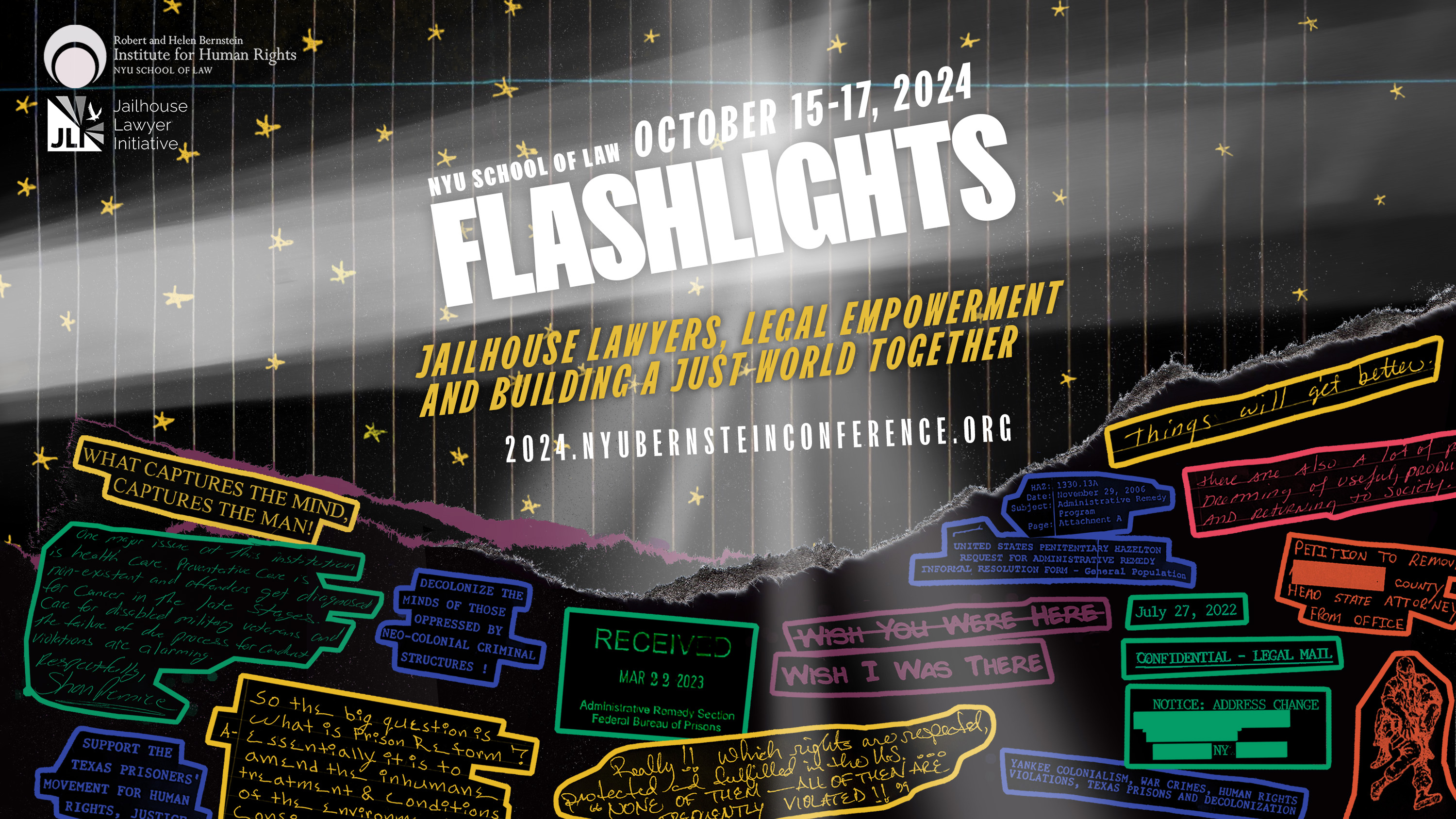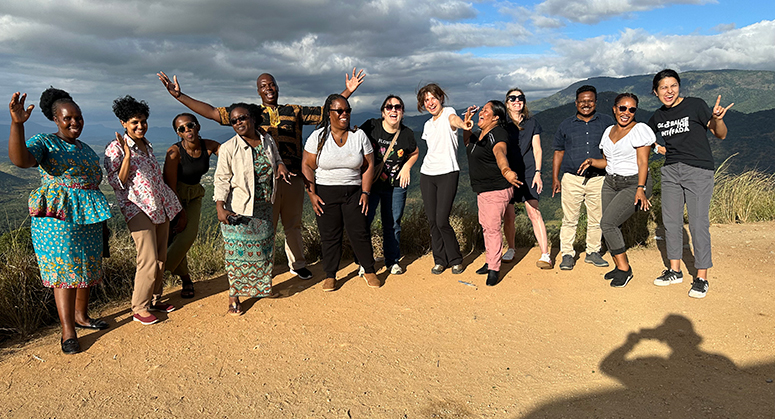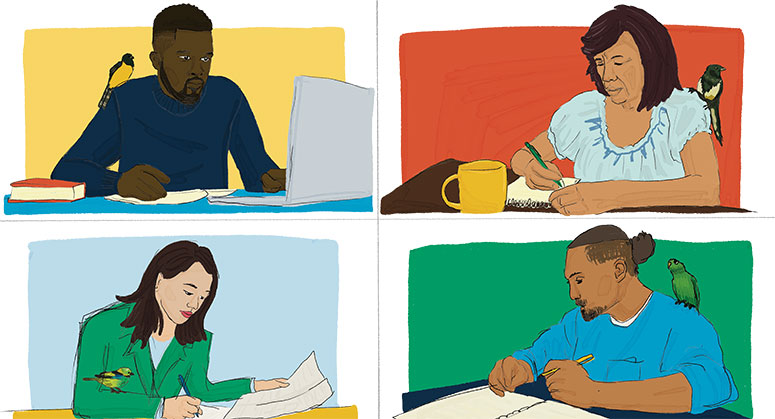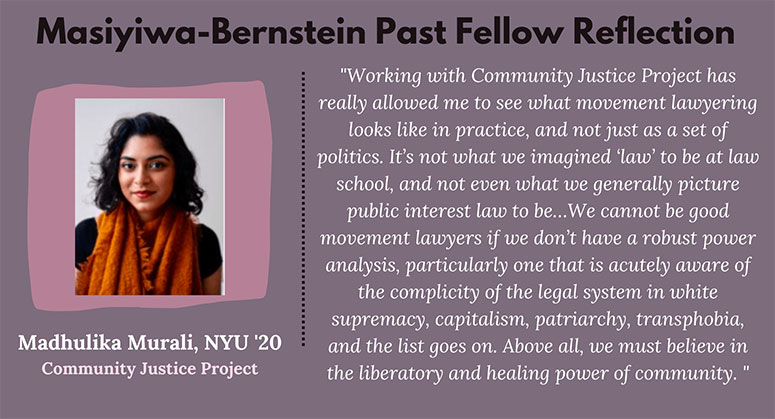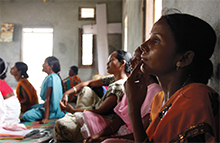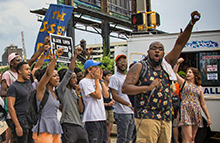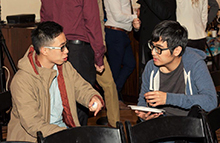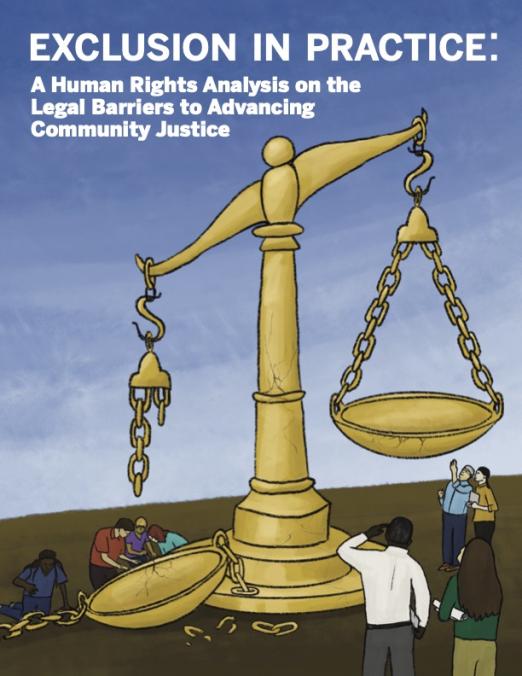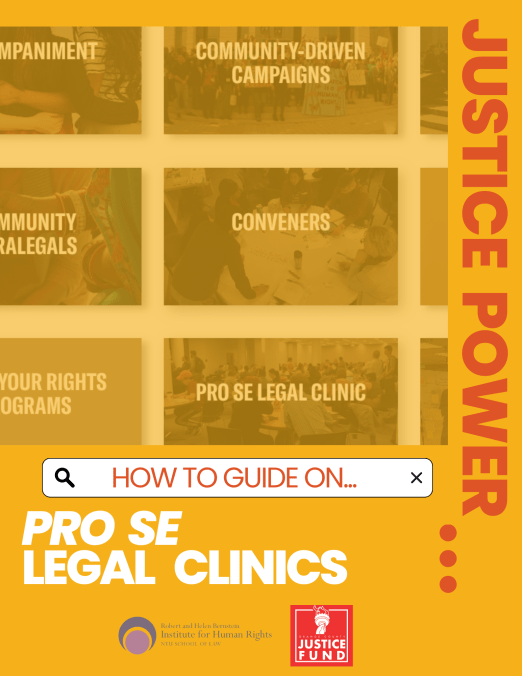Human Rights Research, Advocacy, and Education
The Bernstein Institute for Human Rights is a center at NYU Law committed to challenging legal systems that exclude, marginalize, and oppress. We support and train community justice advocates, law students, and lawyers on legal empowerment methods as a way to actively challenge inequities here in the U.S. and around the world. We believe that the practice of law can and should be rooted in dignity and care.
The work of the Institute is supported by Professor Margaret Satterthwaite ‘99 as Faculty Director and Sukti Dhital as Executive Director.
Keep up to date with the Bernstein Institute - join our mailing list! Support the Bernstein Institute.
Our Focus Areas
Institute Updates
We are excited to welcome S. Priya Morley as Director of the Racial Justice Initiative. The Initiative strives to advance critical thinking about the role of human rights to achieve racial justice and equality.
Join us on March 13th at 5:30-7pm for "Movement for Reparations: Racial Justice, Climate Justice and the Case of Haiti." Focusing on Haiti as an exemplary case, this event will bring together advocates and allies working in Haiti with leading race and international law experts to discuss growing movements for reparations. Speakers will address how the unjust impacts of climate change may connect to and reinforce demands for reparations for colonialism, slavery, and ongoing racial injustice, and the possibilities and limitations of international law to advance reparations claims.
The International Access to Justice Forum 2025 will bring together a diverse group of scholars, researchers, practitioners, reformers, court and dispute resolution experts, and all who are committed to increasing access to justice to discuss exciting new research, theory, and policy developments in the global movement for civil justice.
Date: September 26-27, 2025
Location: Fordham University School of Law and New York University School of Law
We seek to make this a truly international conference and hope to be able to offer limited scholarships to expand the participation of persons interested in attending the Forum from other parts of the world. Click here to receive a notification email when registration is open.
Our NEW Global Report is Out!
The Bernstein Institute for Human Rights is thrilled to share the launch of our global report, Exclusion in Practice: A Human Rights Analysis on the Legal Barriers to Advancing Community Justice. The report explores the power, promise, and struggles of community justice workers––human rights defenders who are KEY actors in the legal ecosystem.
In particular, the report brings visibility to harmful laws that restrict the ability of community justice workers to fully participate in justice efforts. Told through a mix of research, analysis, and 8 global case studies, the report unpacks how harmful laws that regulate legal practice exclude communities and violate human rights. The report outlines recommendations co-created by global legal empowerment practitioners that call for reform to strengthen access to justice, uplift the work of community justice workers, and build community power and participation. Read the full report.
Missed the panel discussion? Watch it here.
Justice Power has Re-launched!
Justice Power is back with new organizations, more strategies, and updated resources!
In 2018, the Bernstein Institute launched Justice Power, a documentation project that partners with directly affected community members, immigration advocates, and lawyers in the United States to highlight legal empowerment strategies that help immigrant communities to know, use, shape, and transform the laws that impact their lives.
Our team has spent the past year building relationships with over a dozen new legal empowerment organizations, identifying new strategies, and co-developing how-to guides.
Visit JusticePower.org to learn more.
Lab Stories: JLI
The Jailhouse Lawyers Initiative (JLI), founded by former jailhouse lawyer Jhody Polk, invests in jailhouse lawyers as a core strategy in ending the cycle of incarceration. The JLI fuses legal education, movement building, participatory research, and advocacy to bring visibility to jailhouse lawyers and ensure they have the resources to know, use, and shape law.
Lab Stories: Barefoot Law
We are excited to share this video featuring one of our partners in the Lab - Tim Kakuru and Barefoot Law in Uganda. Barefoot Law transforms communities and helps build power among the most underserved people in Uganda by using legal empowerment as a tool to expand access to justice.

